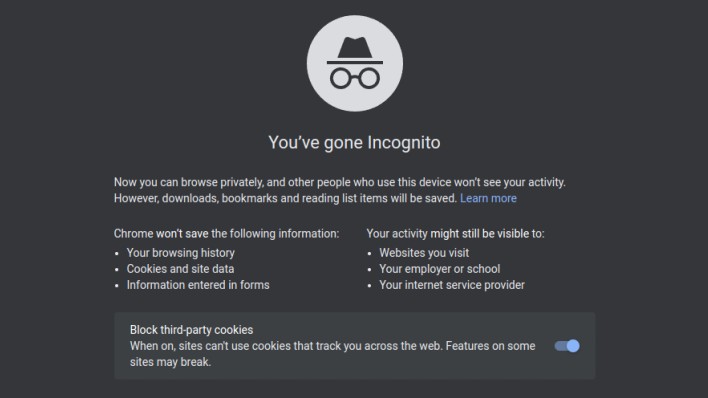
Google promises consumers that they can “browse the web privately” and stay in “control of what information share with Google.” To prevent information from being shared with Google, Google recommends that its consumers need only launch a browser such as Google Chrome, Safari, Microsoft Edge, or Firefox in “private browsing mode.” Both statements are untrue.


"The court concludes that Google did not notify users that Google engages in the alleged data collection while the user is in private browsing mode,” Judge Koh wrote. That was not enough for the judge, however. Google attempted to get the lawsuit thrown out on the basis of Chrome's Incognito explainer, a message that shows every time you start up Incognito mode and explains that "your activity might still be visible to websites you visit." The lawsuit seeks at least $5 billion, or $5,000 per violation for "likely" millions of users. The lawsuit contends that Chrome's private browsing "Incognito" mode should also stop Google's server-side tracking and that Google's failure to cease such tracking violates federal wiretap laws. On the same day, the company’s Class C shares declined 1.5% in regular trading to $2,214.91, according to data from Benzinga Pro.US District Judge Lucy Koh has ruled that a class-action lawsuit against Google's Incognito tracking policies can go forward, Bloomberg reports. Price Action: On Thursday, Alphabet Class A shares closed 1.35% lower at $2,207.68 in the regular session and fell 0.2% in extended trading. In April, rival Apple Inc AAPL left an industry-friendly privacy lobbying group, which counts Google as a member, saying the State Privacy and Security Coalition lobbied for weak privacy laws that benefit the industry instead of users. On Google’s support pages, the company says that while incognito mode stops Chrome from saving browser activity to local history, it may still be visible to external parties such as websites you visit, your employer, network administrators, and search engines.

Why It Matters: Paxton previously alleged Google continued to track the location of its users even though it sought to prevent it, reported Reuters.


 0 kommentar(er)
0 kommentar(er)
